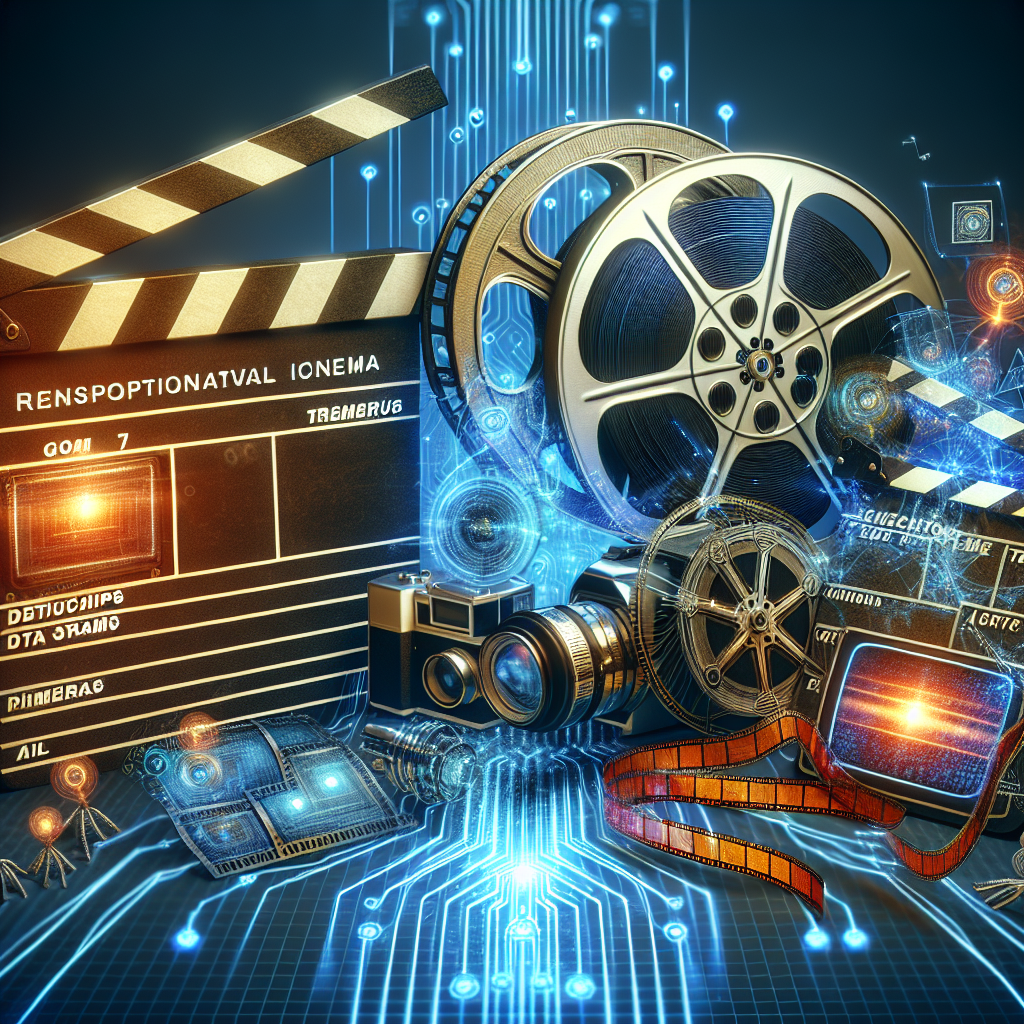Generative AI, also known as artificial intelligence, has been making waves in various industries, including the film industry. This cutting-edge technology has the ability to create new and original content, revolutionizing the way films are produced, from scriptwriting to visual effects. In this article, we will explore how generative AI is transforming the film industry and its potential impact on the future of filmmaking.
Generative AI in Scriptwriting
One of the most significant ways generative AI is transforming the film industry is through scriptwriting. Traditionally, screenplay writing is a time-consuming and collaborative process that involves multiple drafts and revisions. With generative AI, filmmakers can now use algorithms to generate scripts quickly and efficiently.
Generative AI can analyze existing scripts and generate new ones based on patterns and trends in the data. This technology can also help filmmakers come up with fresh ideas and storylines, leading to more creative and engaging films. By using generative AI in scriptwriting, filmmakers can save time and resources while also exploring new storytelling possibilities.
Generative AI in Visual Effects
Another area where generative AI is making a significant impact in the film industry is in visual effects. Traditionally, visual effects are created using computer-generated imagery (CGI), which can be time-consuming and expensive. With generative AI, filmmakers can now generate realistic visual effects more quickly and efficiently.
Generative AI can analyze existing visual effects and generate new ones based on the data. This technology can also help filmmakers create more personalized and unique visual effects for their films. By using generative AI in visual effects, filmmakers can save time and resources while also pushing the boundaries of what is possible in filmmaking.
Generative AI in Film Editing
Generative AI is also transforming the film industry through film editing. Traditionally, film editing is a labor-intensive process that involves cutting and rearranging footage to create a cohesive story. With generative AI, filmmakers can now use algorithms to automate the editing process and create more polished and professional-looking films.
Generative AI can analyze existing films and generate new edits based on the data. This technology can also help filmmakers experiment with different editing styles and techniques, leading to more innovative and visually stunning films. By using generative AI in film editing, filmmakers can save time and resources while also improving the overall quality of their films.
Generative AI in Film Marketing
In addition to scriptwriting, visual effects, and film editing, generative AI is also transforming the film industry through film marketing. Traditionally, film marketing involves creating promotional materials such as trailers, posters, and advertisements to generate buzz and interest in a film. With generative AI, filmmakers can now use algorithms to generate marketing materials more quickly and efficiently.
Generative AI can analyze existing marketing materials and generate new ones based on the data. This technology can also help filmmakers target specific audiences and tailor their marketing campaigns to maximize exposure and engagement. By using generative AI in film marketing, filmmakers can save time and resources while also reaching a wider audience and increasing the success of their films.
FAQs
Q: How is generative AI different from other forms of artificial intelligence?
A: Generative AI is a subset of artificial intelligence that focuses on creating new and original content, such as scripts, visual effects, and marketing materials. Unlike other forms of AI, which are designed to perform specific tasks or solve specific problems, generative AI is more focused on creativity and innovation in the creative industries.
Q: How is generative AI used in the film industry?
A: Generative AI is used in the film industry in various ways, including scriptwriting, visual effects, film editing, and film marketing. Filmmakers can use generative AI to generate scripts, create visual effects, automate the editing process, and generate marketing materials more quickly and efficiently.
Q: What are the benefits of using generative AI in the film industry?
A: The benefits of using generative AI in the film industry include saving time and resources, exploring new storytelling possibilities, creating more personalized visual effects, experimenting with different editing styles, reaching a wider audience, and increasing the success of films.
Q: What are the potential drawbacks of using generative AI in the film industry?
A: Some potential drawbacks of using generative AI in the film industry include concerns about copyright infringement, lack of human creativity and intuition, potential biases in the algorithms, and the risk of replacing human jobs in the creative industries.
In conclusion, generative AI is transforming the film industry in numerous ways, from scriptwriting to visual effects to film marketing. This cutting-edge technology is revolutionizing the way films are produced, allowing filmmakers to save time and resources while also exploring new storytelling possibilities and pushing the boundaries of what is possible in filmmaking. As generative AI continues to evolve and improve, it will undoubtedly play a crucial role in shaping the future of the film industry.

